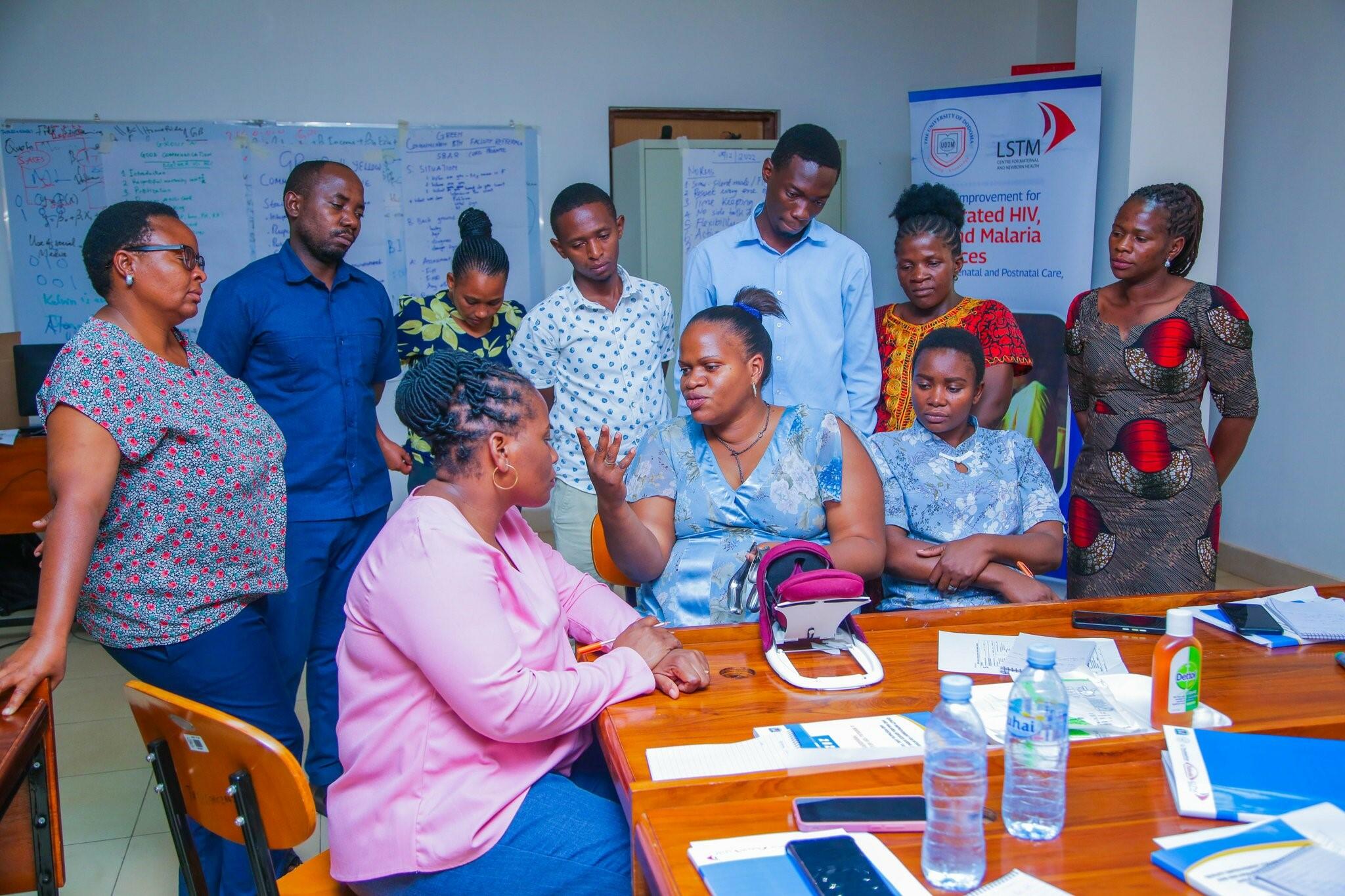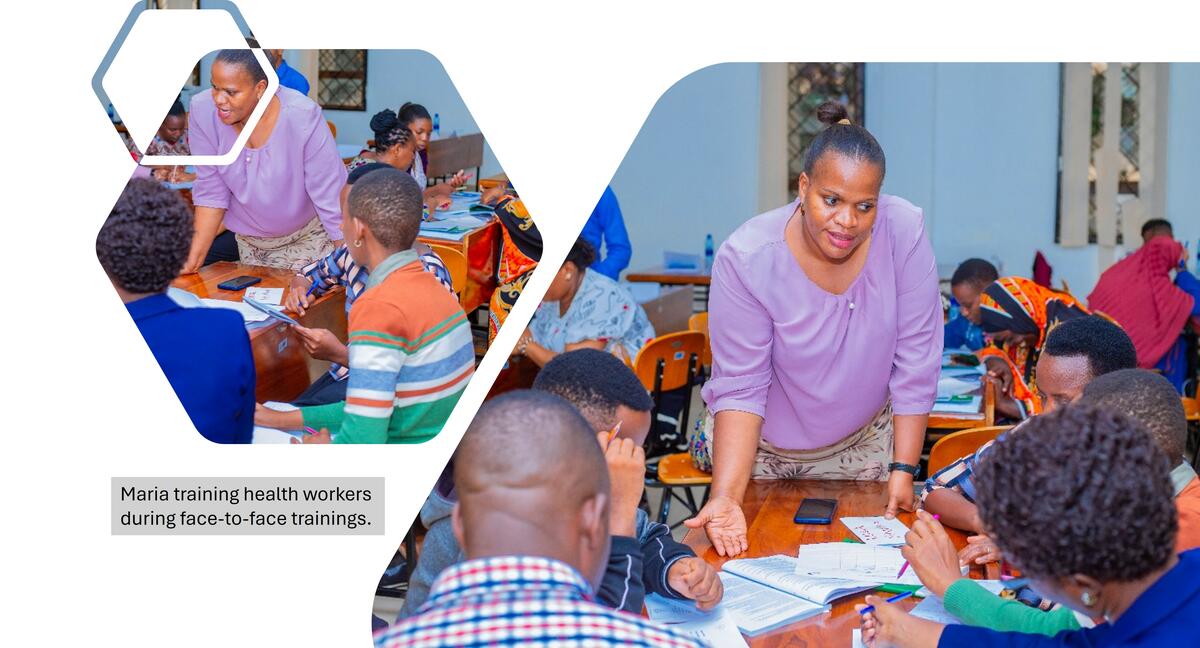
Author: Janice Njoroge, Development Communications Specialist, Mint Strategic Communications
Maria-Angelica Rweyemamu is a nurturing academic who is deeply committed to improving maternal health. Her work, which focuses on enhancing the quality of antenatal care services in sub-Saharan Africa using available routine data, reflects her dedication to the well-being of African mothers and their babies. Known for her approachable demeanour and caring nature, Maria is a steadfast advocate for maternal health, making a meaningful impact through her research and teaching.
Entry into Public Health Research
Maria's journey into public health research was inspired by her passion for bettering maternal health outcomes. As a dedicated lecturer at the University of Dodoma, she plays a pivotal role in shaping the future of medical students and residents in obstetrics and gynaecology. Her mentorship instils in them the importance of evidence-based practice, ensuring that her influence extends beyond her research.
Her belief in the power of research to drive improvements in healthcare quality led her to focus on filling the gap in measuring antenatal care quality and providing actionable insights at all health system levels. When the University of Dodoma partnered with the Liverpool School of Tropical Medicine (LSTM) in April 2022 to implement a quality improvement project integrating HIV, TB, and malaria care into antenatal and postnatal services in Tanzania, Maria saw a golden opportunity. LSTM is a UK-based research institution with a global health impact track record and a high student satisfaction record. This partnership offered a PhD sponsorship in maternal health, and Maria, driven by her unwavering commitment, applied and was selected.
Her PhD research aims to use the current maternal disease burden in Tanzania to identify key intervention data that can be used to assess health outcomes related to common maternal conditions. The study explores how healthcare providers can use this information to offer actionable feedback to health facility management, enhancing the quality of antenatal care services. Additionally, Maria is investigating the feasibility of incorporating dimensions of patient experiences, such as confidence in the care, to assess the effectiveness of antenatal care.

The Full-Time Reality of Family Life
Beyond her academic pursuits, Maria is a devoted mother of four, with her children being the centre of her world. Balancing her demanding career and family life is no small feat, yet Maria's resilience and determination shine through as she maintains a harmonious balance. The unwavering support of her husband, extended family, and friends plays a crucial role in her ability to navigate these responsibilities.
In addition to her roles as a researcher and mother, Maria has a creative side. If she had not pursued a career in public health, she could have seen herself in management or as a human resources manager, where her people skills would have been invaluable. Alternatively, her creativity might have led her to interior design, crafting family-friendly and functional spaces.
Aligning Passion and Purpose
Maria’s research is not just about data - it is about people. She is deeply committed to ensuring that clinical decisions on maternal health are tailored to the needs of the communities they serve. By using maternal health outcome indicators to assess the quality of antenatal care, Maria's work takes significant strides toward reducing maternal mortality from preventable causes. Her dedication to contextualising research to address the smallest units of the population drives her daily as she works to ensure that pregnant women receive the best possible care.
Insights on Work-Life Balance
The most exciting part of Maria's PhD journey is the freedom to explore new research skills and methodologies and the joy of discovery with each step forward. However, the journey is not without challenges—there is always so much to do and so little time. But Maria finds strength in the support of her peers, supervisors, family, and colleagues, who motivate her to keep pushing forward.
After long days of PhD work, Maria unwinds by spending time with her children, tending to her garden, swimming, and catching up with family and friends. These moments of relaxation help her recharge and focus on her research and personal responsibilities. Maria also enjoys spending time in nature, and her love for gardening allows her to connect with nature, providing a soothing contrast to her academic life.
The Future and Advice to Aspiring PhD Candidates
Looking to the future, Maria plans to apply her research skills in her career as an academician and practitioner, sharing her findings with policymakers and health facility management teams to create lasting change. She envisions a future where her research contributes to the sustainability of maternal health and significantly reduces maternal mortality from preventable causes.
Her advice to aspiring PhD candidates? “There is no better time to start than now and trust the process.”
Maria's story is a testament to the power of dedication, balance, and the belief in the importance of maternal health. Her journey is about achieving academic success and impacting the health and well-being of mothers and their children.